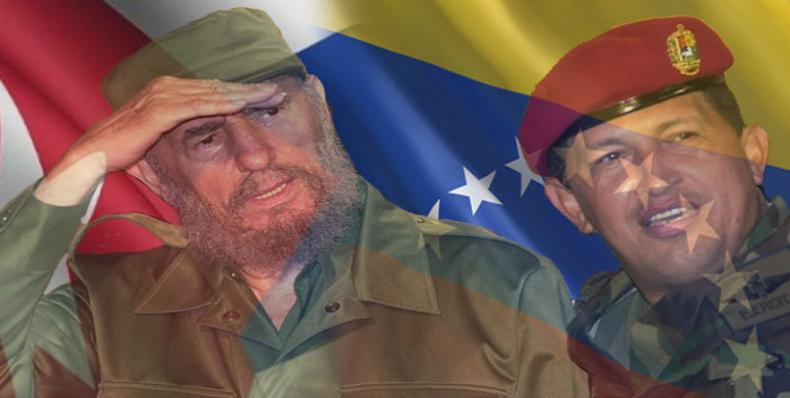
Many Cubans welcomed Venezuelan leader Hugo Chávez as a son of the Homeland, given his revolutionary stature, simplicity, love for justice, attachment to the land of José Martí and close friendship with Fidel Castro.
By Roberto Morejón
Many Cubans welcomed Venezuelan leader Hugo Chávez as a son of the Homeland, given his revolutionary stature, simplicity, love for justice, attachment to the land of José Martí and close friendship with Fidel Castro.
As if to evoke those ties, strengthened even after the death of the former Venezuelan president, Cuban leader Raul Castro traveled to Caracas, who, moved, paid tribute to him, together with a high-level Antillean delegation, on the tenth anniversary of his physical demise.
The commemorative activities for the anniversary of Chavez's definitive departure take place twenty eight years and three months after his first visit to Cuba.
The event marked the beginning of a crucial stage in the relations of the so-called eternal commander in Venezuela and this Caribbean nation.
Chavez traveled to Havana after his release from prison for having commanded a military insurrection against the oligarchic government of Carlos Andres Perez on February 4, 1992.
Surprisingly, at the foot of the stairs of the plane was the historical leader of the Revolution, Fidel Castro, who gave him honors almost as a Head of State.
From the first contact with representatives of the young students, Chávez caught, in the good sense of the word, the attention of the Cubans.
Before, they were not aware of the details of his vicissitudes, his humble origin, courage and thought of social justice and Latin American unity.
Later, Hugo Chavez would be inaugurated as President of the Republic on February 2, 1999.
The new stage facilitated the rapprochement between Cuba and Venezuela and for the new president of the brother country to become in a short time what Fidel Castro defined as "Cuba's best friend".
The rebel born in Barinas was valued in all his dimension by the Cuban people, who recognized in him a natural leader, outstanding in improvisation and pure charisma.
And above all, he was one of the main architects of the brotherhood between the peoples of Venezuela and Cuba.
Here he is remembered for his forceful rejection of the Free Trade Area of the Americas and his tenacious opposition to U.S. interference and pressures.
When he was most vital and necessary, Hugo Chávez became news due to his illness, part of which was spent in Cuba, to the astonishment and anxiety of the locals.
Cubans in mourning: after a tenacious fight against cancer, Hugo Chávez passed away at the age of 59.

